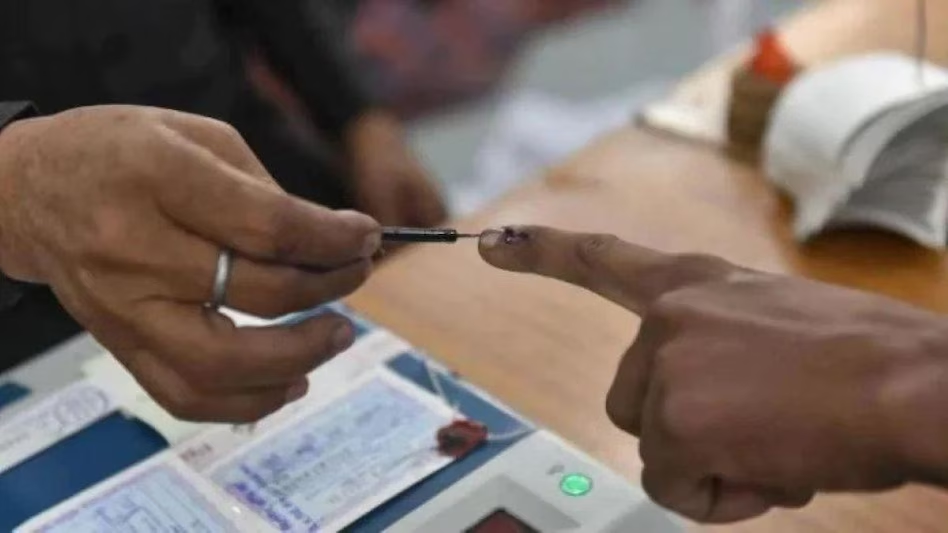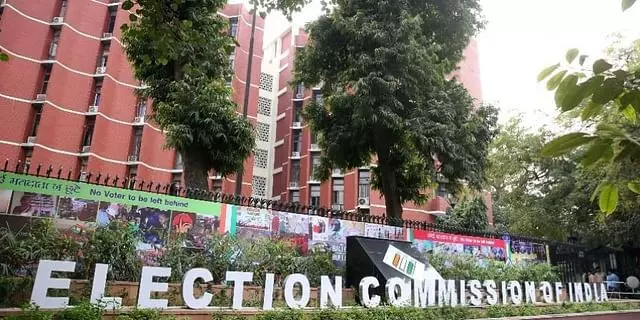
Gerrymandering of constituencies is now in Assam
text_fieldsThe Modi administration’s nine-year record suggests that it is engaged in devising and implementing whatever plots it takes to make India’s Muslim minority of more than twenty crores irrelevant and steered off from the mainstream and nation-building. The BJP’s plan not to bring a single Muslim to the parliament and legislatures on its ticket has been almost a complete success. The Union cabinet does not have a single person representing the religious monitory that makes up 15 per cent of India's population; it is the same in the ministries of the BJP-ruled states. The Sangh Parivar controlled civic bodies have no different story to say. Convinced that this alone will not help exclude Muslims altogether, a solution found is to redistribute Muslim-majority constituencies or where their votes are crucial. This is aimed at stopping them from getting elected as representatives of secular Opposition parties. After filling the Election Commission with their people like in all other constitutional institutions, there is a move afoot to gerrymander constituencies and classify those with Muslim majority into reserved seats for Scheduled Castes and Scheduled Tribes.
Having divided the only Muslim-majority state of Jammu and Kashmir into three Union Territories, the Modi government has started the strategy of not ever making it a Muslim-majority state again, if ever the statehood is restored. Planned thus, the redistribution outline formulated by the Delimitation Commission under the Election Commission came out last year. Accordingly, though the population ratio of Hindu majority in Jammu is only 44 per cent, they will represent 48 percent of the total seats in Jammu and Kashmir, and the 56 percent Kashmiris can influence only 52 percent of remaining seats. Nine of them are reserved seats. In effect, the future Jammu and Kashmir Assembly will have majority BJP candidates. Though all the political parties in Kashmir protested against the redistricting that came out in May 2022, the Modi government paid no attention to it. As for the petitions against revoking the constitutional status of Jammu and Kashmir, they are still pending before the Supreme Court.
Now the Election Commission has stepped in to gerrymander Assam Assembly constituencies with 29 of them having a Muslim majority. The current number of 126 assembly constituencies and 14 Lok Sabha constituencies will remain unchanged; however, the number of constituencies can be increased in 2026. The move is to reduce the number of Muslim-majority constituencies from 29 to 22. By attaching Bajali, Bishwanath and Hojai districts to the Muslim majority districts, the total number of districts has been reduced from 35 to 31. The protest by the opposition, which includes Maulana Badruddin Ajmal's All India United Democratic Front and the Congress, was not enough to stop the government’s decision. Chief Minister Himanta Biswasharma claims that this can help achieve the goals that the Citizenship Amendment Act and the Rajiv Gandhi Agreement of 1985 could not pull off. Now Hindutva regime and its forces are upset by the fact that the world knows about this plan to eliminate all prospects of any Muslim minority empowerment and power sharing. It is understandable that the question posed to Prime Minister Modi during his American tour and the remarks of former US President Barack Obama disturbed the far right. It is but pity to think that the world will not see through the bragging that all Indians are living like a family when it does not reflect its spirit in actions.

























